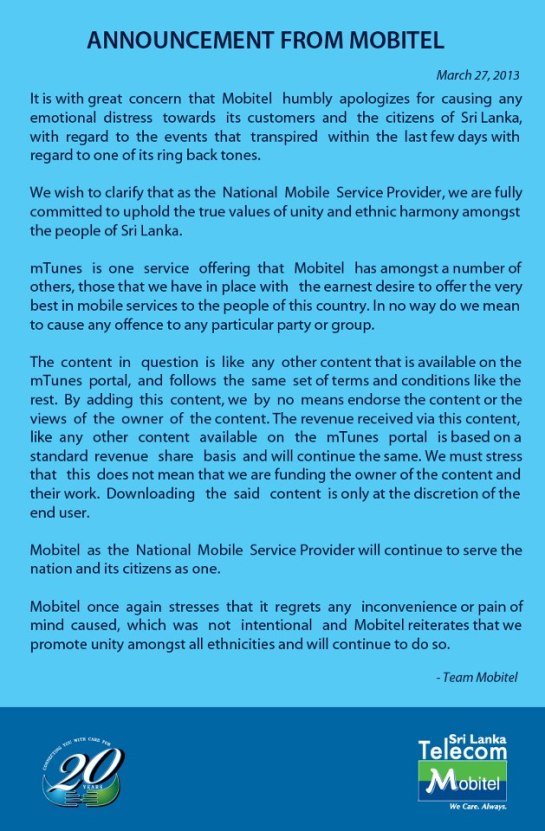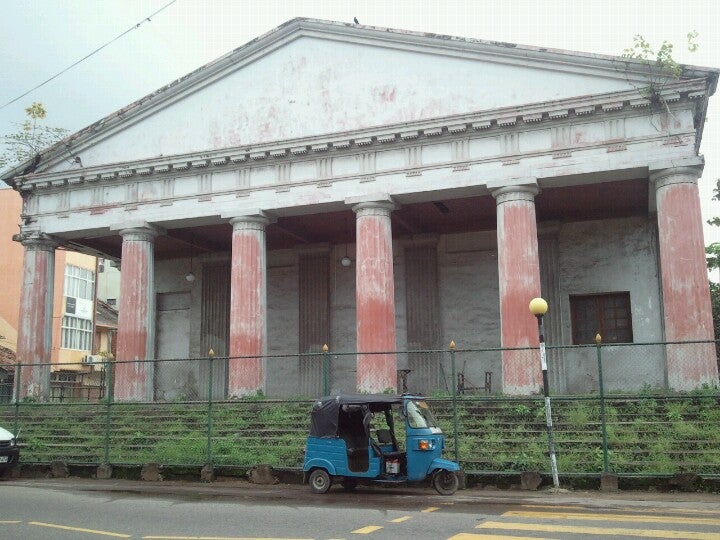Sri Lankans have a fascination with everything foreign. Going ‘to the foreign’ or ‘ab-road’ is considered to be the epitome of success. For after you are ‘in the foreign’ life there is going to be all feather beds and high disposable income.
I’ve run into many people like that in my time, who hasn’t? Once i had someone explain to me in great detail how to make a convincing case to seek asylum in Canada. The process involved coming up with a newspaper article/advertisement calling me a wanted man, going through highly exciting cut-throat late night border crossings and conning Canadian judges. I was sixteen at the time.
Just yesterday i met someone who expressed a strong urge to go to Germany. Why? because it is ‘awesome over there’. Praneeth (name changed) is a low level executive at a multinational corporation. In other words, he has a job and background that many would kill for. Initially I just thought he wanted to visit, how naive of me.
A friend of his: “do you know what he did? he’s working in a garage in Germany.”
And I say, wow yeah that’s great. Praneeth gets a wistful look in his eyes as I ask him ‘so you want to get a work visa?’ But apparently there are no work visas for Germany, which brings us to the thorny question; “how is your friend working in a garage there?”
His friend (let’s call him Channa) ingeniously played the system. He didn’t go all ‘Machang’ and escape the hotel the night before the big handball game, but he still lied and connived for all he was worth.
He went there for a holiday, stayed with a monk he knew and somehow negotiated a deal with a local restaurant which produced a letter attesting to the German immigration authorities that ‘Channa is absolutely the best, and pretty much only, cook in the world capable of cooking at our restaurant and it is absolutely essential that you help him come work for us”.
This enabled him to get a five year stamp the next time he applied. And now Channa works in a garage, painting cars and doing other garagy things, cooking be damned. His education is wasted, but he tells Praneeth during his frequent visits home that he feels “very secure” and wouldn’t give it up for the world. And now poor Praneeth wants to quit his corporate job and do the same thing.
If you thought Channa was quite the ‘arch bugger’, let me tell you about Praneeth’s other friend Nimal who is some kind of an ‘international player’. His life involves shuttling between several high profile foreign countries every five months or so. He’d work for five months in the US, come to Sri Lanka, and go work for five months in the UK. I am fascinated, how in the world does he manage this?
Nimal, like Channa, initially went for a holiday. He then came back to Sri Lanka and applied again, and this time got a much longer stamp on his visa. He used this to surreptitiously get a job being a waiter, cleaning stuff or like Channa, working in a garage. Unglamorous, but it pays the bills for a glamorous image back home.
Actually, he is part of a whole network of such ‘international players’ who simply switch jobs with each other when their visas begin to expire; ensuring a constant supply of international jobs that will not cause them to overstay their visas and impinge on the hospitality of their hosts in any way (other than by stealing their jobs of course).
So for example Nimal would give his job in the US over to his friend Riyas as Riyas leaves his job being a street cleaner in the UK which he gives to Nathan who gives up his job as a logger in Scandanavia to Kamal who in turn will leave his job as a shop assistant in Italy just in time for Nimal to come back from a short intermediate stay in Sri Lanka to claim it. And they keep switching ad infinitum. Praneeth thinks its brilliant.
No wonder us unambitious Sri Lankans get so much shtick from Western visa authorities. I don’t blame them either. We enter their countries by the boatload, clog up their social security nets and even contribute with our own brand of organized crime, with raging chain gangs in countries as diverse as Canada, UK and Italy hailing from places like Ja-Ela and Wattala (town names just an example, nothing personal if you live there).
I’ve spoken to others who are a lot more honest about this kind of living. And apparently, hard labor is hard labor whether you are in a developed country or not. Some work three jobs and barely get enough sleep. They show a pretty picture to everyone back home, but they live on the fringes of society and become anonymous automatons with no identity. No life even. And many regret ever leaving home.
*Abroad Yamuda Machang?: Shall we go abroad, mate?








